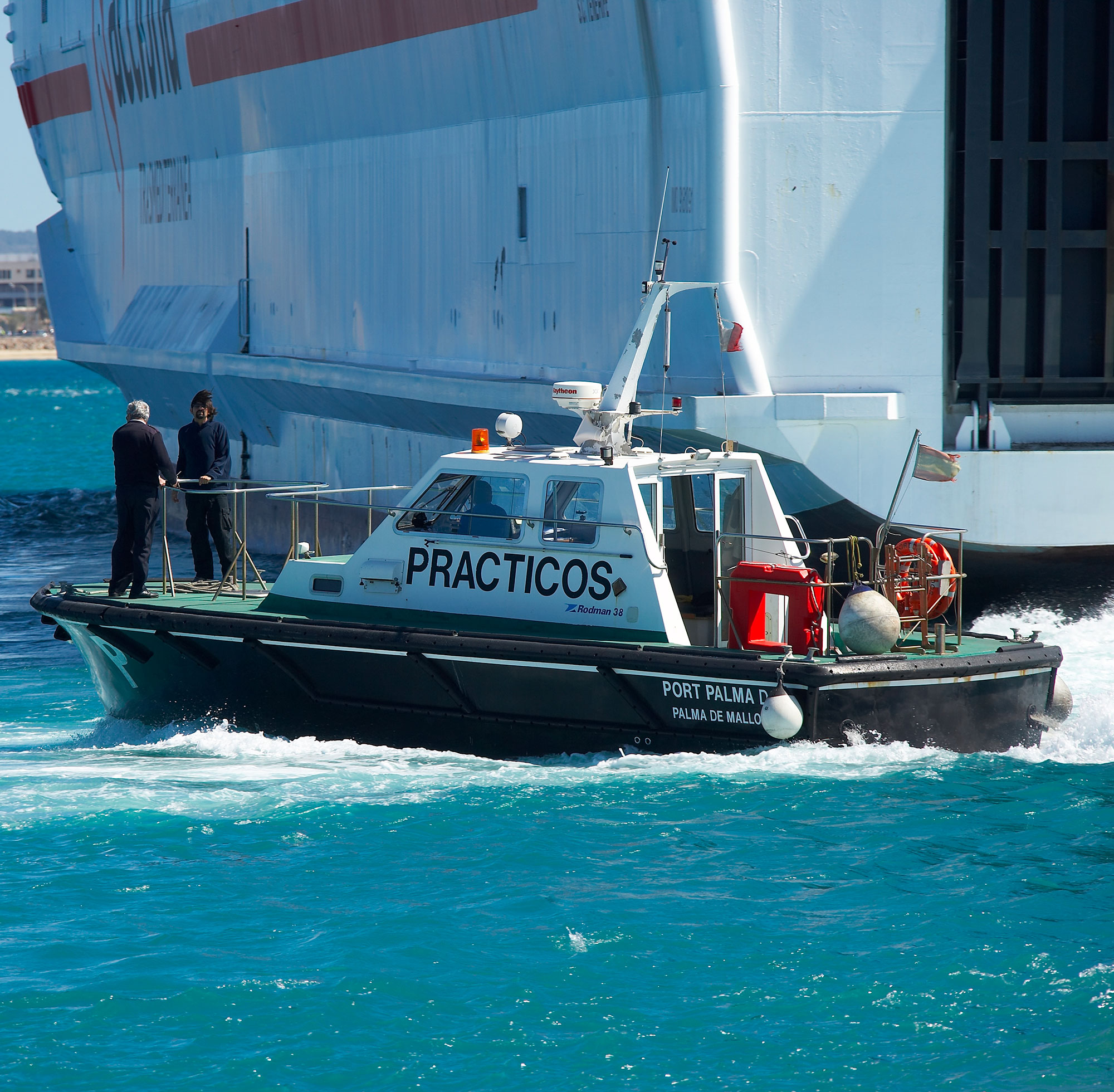The Corporation of Pilots of the Port of Palma is in charge of providing the pilotage service in the port waters established in the service license approved by the Balearic Islands Port Authority.
Pilotage is a universal service, mandatory for ships of more than 500 GT or of any size as long as they transport dangerous goods.< /span>
It is classified as a concessioned service and strongly regulated due to its impact on navigation safety.
The pilot is the person who, prior to his corresponding qualification and appointment, advises the captains of ships and floating artifacts to facilitate their entry and departure from ports, rivers, estuaries or bars, anchorages, buoys, external loading docks and dikes, in both internal and external movements of ships, in anchoring, docking and undocking, as well as in other areas, indicating the appropriate route of the ship and the nautical maneuvers necessary for greater navigation safety.
According to current regulations, pilotage is understood as the advisory service to ship captains, to facilitate their entry, exit port and nautical maneuvers within the geographical limits of the pilotage area, in safe conditions and under the terms established in the State Ports and Merchant Navy Law, in this General Regulation, as well as in those other regulatory or contractual provisions that are applicable.

This service will be provided on board the ships, including the instructions given by the pilots from the moment they leave the pilotage station, to ensure for the safety of navigation, ships, their crews, port facilities and service users.
The service is provided 365 days a year, twenty-four hours a day and without interruption to facilitate the entry and exit of passengers and goods through the port of Palma.
Our efforts are focused on offering a safety and quality service, provided by highly qualified and prepared professionals whose objective is to ensure the maritime security and protection, the safety of human life at sea and the protection of the marine environment in the maritime-port area, carrying out our work, both technical and administrative, with the utmost professionalism and in an exemplary manner.</span >
Our profession happens to be one of the oldest and most unknown. The first Corporations are documented from the fifteenth century in Spain. Its first Ordinances date back to 1737, which contemplated the pilot as second officer of the ship or as a German or coastal pilot (although there were incomplete regulations since 1561 on the remuneration of pilots). The Ordinances of 1737 establish mandatory pilotage: "Every captain or master upon entering the port of his destination or another of his precise arrival must take the regular and practical pilot of it as well as for the entrance and for the ascent to the convenient spring to his ship.”

